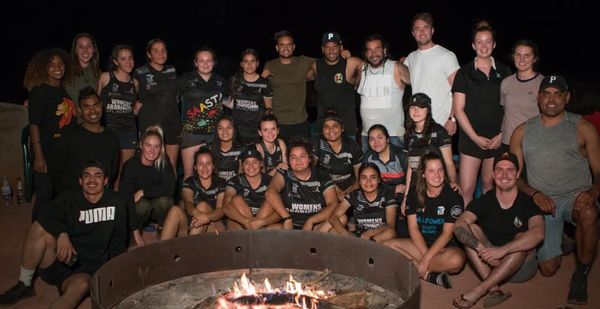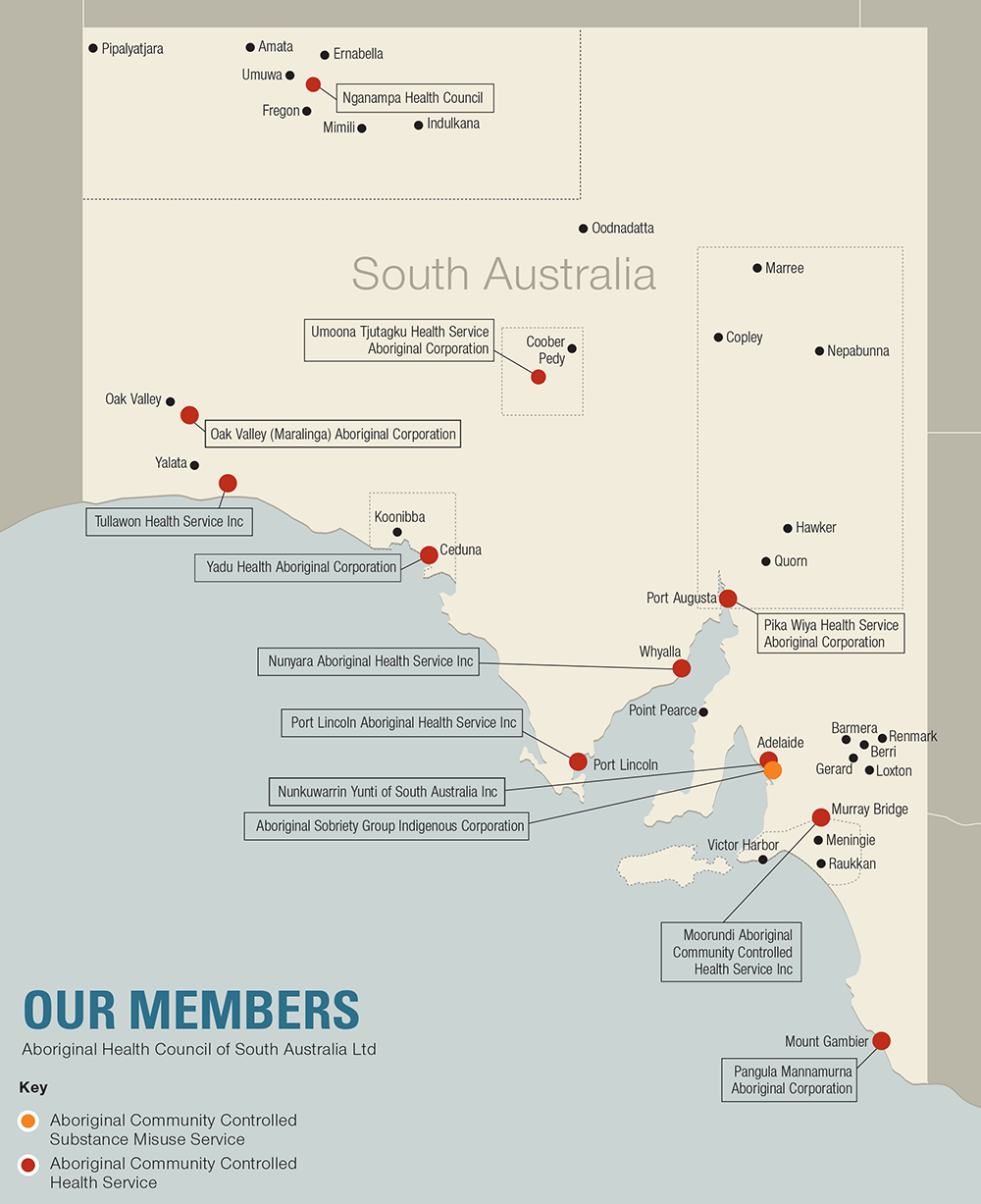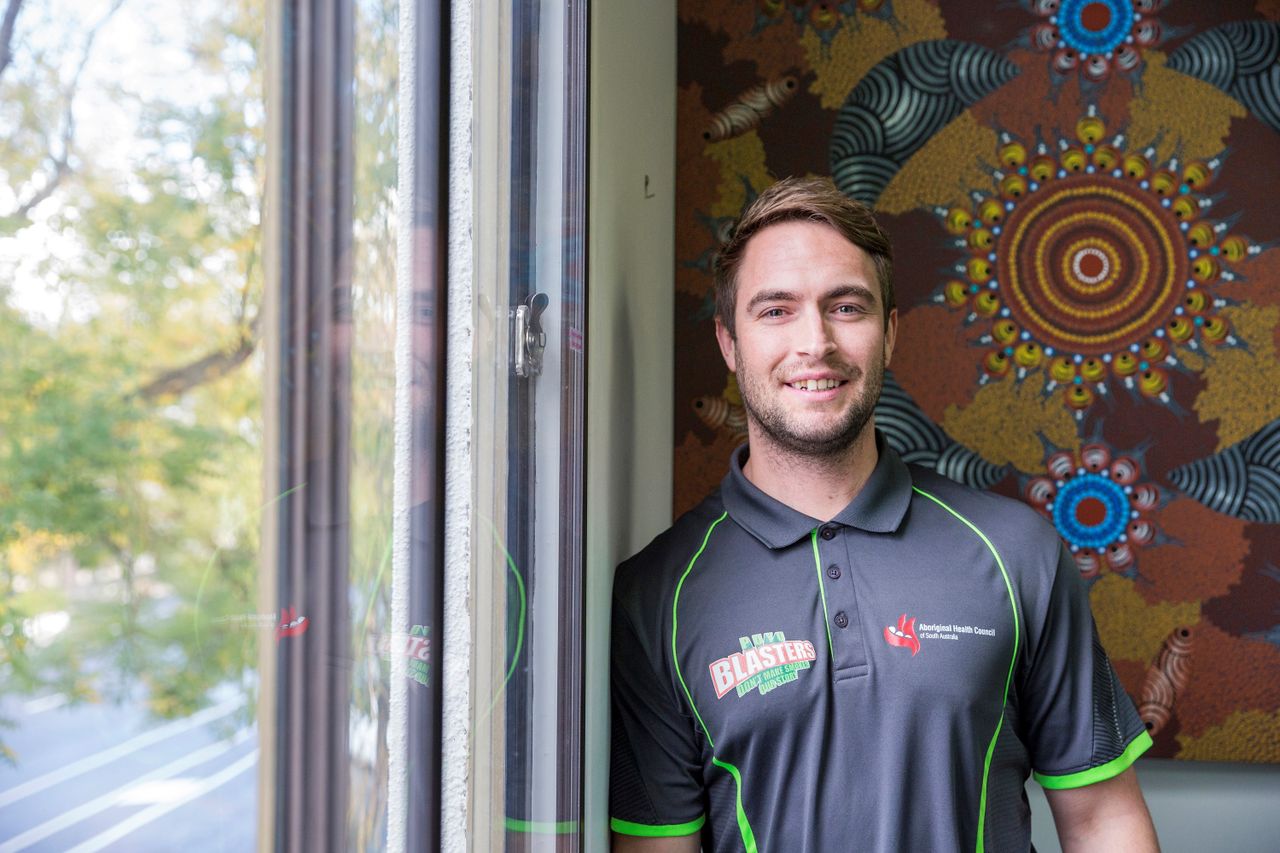Latest news
- First Nations Health Worker Traineeship (FNHWT) program launches at AHCSA
- AHCSA Sexual Health team present at Aboriginal Sexual Health Workshop, Darwin
- Aboriginal Maternal Infant Care (AMIC) course update
- 13 February 2024: National Apology Day
- Dr Lowitja O’Donoghue AC CBE DSG – 1 August 1932 - 4 February 2024
- Free Mooditj Leadership Training Course, Port Augusta
- Smoking ceremony at AHCSA
- Australia Day 2024
- AHCSA delegation meets with Federal Minister of Health & Aged Care
- SHINE SA brings Mooditj to AHCSA
- AHCSA announces management restructure
- 2023's final face-to-face class concludes at the AHCSA RTO
- AMIC Project Update: Aboriginal Maternal and Infant Care (AMIC) training back on the agenda for 2024
- AHCSA RTO: new CERT III and CERT IV classes commence
- AHCSA and members attend NACCHO annual conference
- Voice to Parliament defeated - self-care resources
- Indigenous bowel-cancer screening
- NACCHO COVID-19 Vaccination Promotion Competition 2023
- Six-week STI/BBV screening program commences at Pika Wiya
- Indigenous Voice to Parliament referendum date announced by Prime Minister Anthony Albanese
- Federal Minister of Health Hon. Mark Butler visits AHCSA
- Oodnadatta desalination plant commences operation
- Drug Alert notice: protonitazene
- NAIDOC Week 2023
- First Nations Philanthropic Funders Working Group focuses on COVID-19 preparation and recovery
- Naomi Thornthwaite and Kim Morey present at Lowitja 2023
- 2023 Lowitja Institute International Indigenous Health and Wellbeing Conference, Cairns
- Cert IV student cook-off
- National Sorry Day
- South Australian Aboriginal Health Roundtable 2023
- Celebrating new certified Aboriginal health workers
- AHCSA RTO update
- SA becomes first Australian jurisdiction to create First Nations Voice to Parliament
- AHCSA TIS team members receive awards at national conference
- AHCSA's Josh Riessen presents on Point of Care Testing for Infectious Diseases
- AHCSA delivers suicide alertness workshops in SA Far West Coast
- World Hearing Day 2023
- National Condom Day 2023
- Voluntary Assisted Dying becomes legal in South Australia
- World AIDS Day
- AHCSA's Sexual Health Team Wins People's Choice Award SH Poster!
- Media Release - AHCSA RTO
- Mparntwe Aboriginal Sexual Health NT/SA Workshop
- Dr. Annapurna Nori chats all things COVID-19 Vaccination for Kids with Gordy Rigney
- NAIDOC Week Events to Attend Across South Australia
- AHCSA Wins National Award of Recognition at 2022 NATSIEHC!
- Aboriginal Oral Health Program (AOHP)
- Yadu Health - EOI: Medical Receptionist
- World No Tobacco Day 2022 with AHCSA's Puyu Blasters
- AHCSA gives Yadu Aboriginal Health Service a Titan!
- Aboriginal Heath and Reconciliation Week With Renee Colbung
- Meet AHCSA's Quality Systems Improvement Coordinator - Venni!
- Strength and Power of Aboriginal Community Controlled Health Services in South Australia
- Is it time for an STI checkup?
- Urgent Mental Health Care Center offers an alternative to mental health support
- IWD 2022 - Celebrating AHCSA's Female Aboriginal Leaders
- AHCSA History Project
- 15 things NOT to do when using a RAT
- Fight the Bite and Mosquito Control
- The Aboriginal Flag has been freed!
- Aboriginal and Torres Strait Islander HIV Awareness Week
- South Australia's COVID-Ready Plan
- 2019/2020 Annual Report


01 April 2022
AHCSA History
Primary health care, within the holistic health provision of an Aboriginal Community Controlled Health Service, provides a sound structure to address all aspects of health care arising from social, emotional and physical factors.
Our vision at the Aboriginal Health Council of SA (AHCSA) is that all Aboriginal people enjoy a high quality of health and wellbeing, with the right to self-determination.
Since 1981 AHCSA has been working to meet the health needs of Aboriginal people in South Australia.
It has done this through representing the collective expertise and aspirations of Aboriginal communities at both State and National levels. AHCSA has engaged in support activities for health services, the direct provision of health care and health programs, the provision of education and training, and research activities.
Aboriginal health means not just the physical well-being of an individual but refers to the social, emotional and cultural well-being of the whole Community, in which each individual is able to achieve their full potential both personally and professionally, thereby bringing about the total well-being of their Community.
It is a whole-of-life view and incorporates the cyclical concept of life-death-life, where primary health care is all-inclusive, integrated health care and refers to the quality of health services.
It is a comprehensive approach, in accordance with the Aboriginal holistic definition of health, and arises from the practical experience within an Aboriginal community - to provide effective and culturally appropriate health services to its communities.

History of Community Controlled Health Services
The first Aboriginal Community Controlled Health Services (ACCHS) was established in Redfern, NSW, in 1971.
Aboriginal Community Controlled Health Services operate in urban, regional and remote Australia.
The ACCHS range from large multi-functional services employing several medical practitioners providing a wide range of services, to smaller services which rely on Aboriginal Health Workers and/or nurses to provide the bulk of comprehensive primary care services, often with a preventive, health education focus.
The services form a network, but each is autonomous and independent both of one another and of government.
The ACCHS model of service is in keeping with the philosophy of Aboriginal community control and the holistic view of health. Addressing the ill-health of Aboriginal people can only be achieved by local Aboriginal people amounting to Aboriginal Health in Aboriginal Hands.

Trent Wingard (Aboriginal Health Workforce Coordinator) shares his personal reflection on the strength and power of the ACCHS in SA
Over the last two years of being the Aboriginal Health Workforce Coordinator I have had the opportunity to delve and understand the incredibly important work that the ACCHS provide to their communities. Being able to facilitate workshops with all Aboriginal and Executive staff at AHCSA’s Member Services has given me a great insight into the strengths, cultural knowledge, and Advocacy that the ACCHS provide.
It’s been wonderful to listen to the experience of the staff and the history of the ACCHS through being in this role.
The ACCHS are one of the largest employers of Aboriginal and Torres Strait Islander peoples across South Australia. The life experience and the community knowledge is what makes these services well respected in the communities.
The staff at the ACCHS bring a wealth of local knowledge, which supports community connection and engagement through a holistic health approach. ACCHS play a significant role in training the medical, primary health care and health promotion workforce and empower Aboriginal communities to take lead in their health outcomes.
I look forward to working closely and doing everything I can to support the growth of the Aboriginal Workforce in South Australia well into the future.


 Back to all news items
Back to all news items